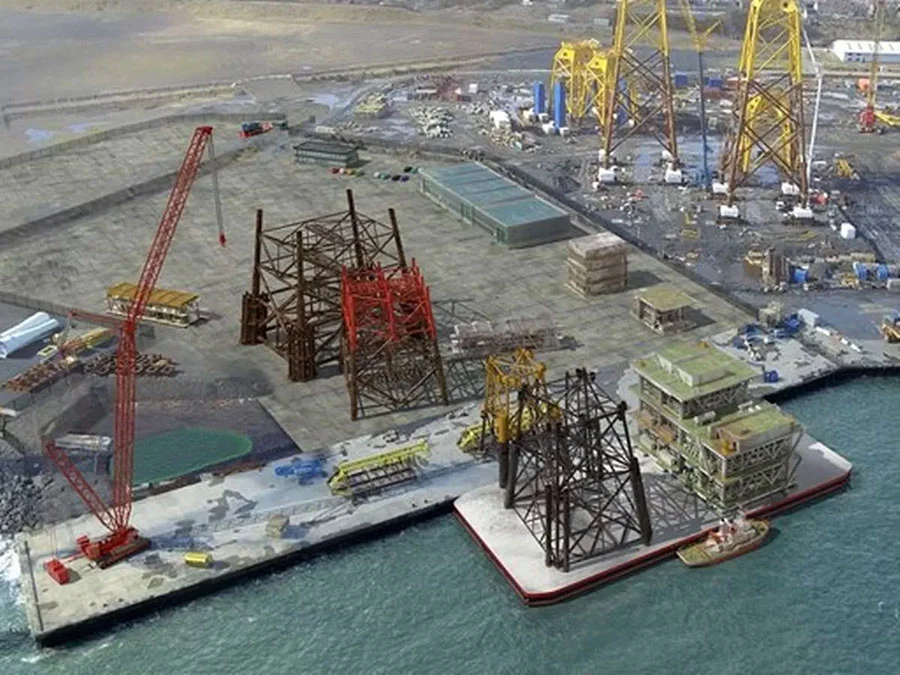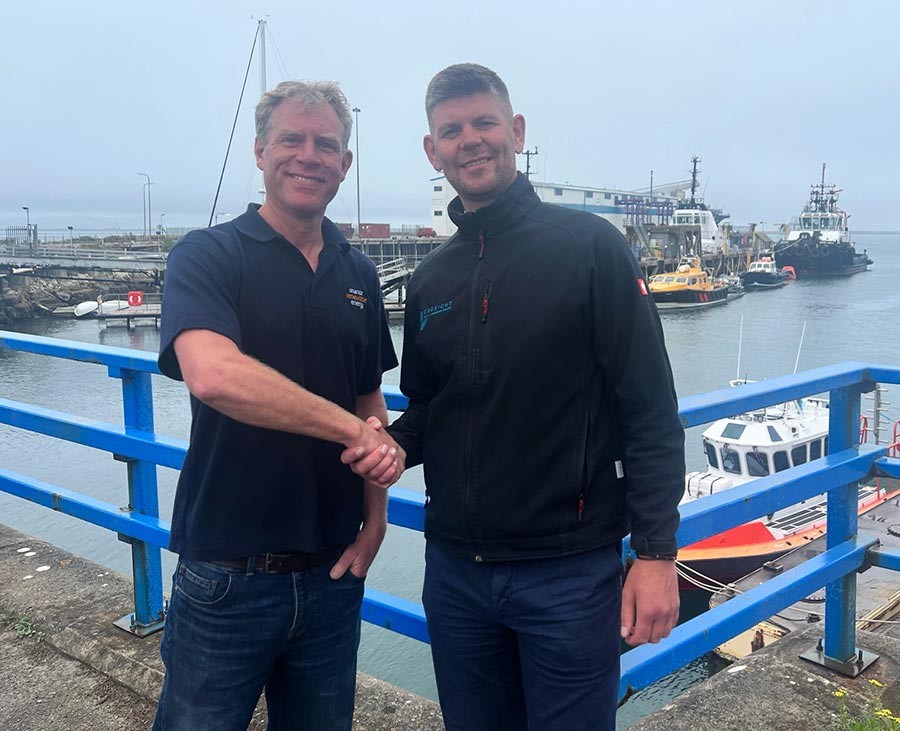Fears offshore oil and gas workers may lose jobs in transition to green energy
Green groups and unions are calling for an “offshore passport” to help oil and gas workers transition more easily to clean energy jobs.
They say many of the skills between jobs on rigs and renewables are similar but it is complicated and costly to get re-certified within the energy industry, making a smooth green transition impossible.
A survey of more than 600 offshore oil and gas workers revealed two thirds said in the past two years they had had to pay for all their training themselves – up from 45% in 2015.
While 69% said they spent more than £2,000 of their own money on training – including safety.
The survey, which was conducted by Greenpeace, Friends of the Earth Scotland, the RMT union and the campaign group Platform, showed that almost everyone – 97% – was concerned about offshore energy industry training costs.
Mel Evans, head of Greenpeace UK’s oil campaign, said: “Offshore workers are key workers who power our energy sector and Business Secretary Kwasi Kwarteng has promised a green energy transition. But his North Sea Transition Deal will achieve no such transition if workers are unable to move to green jobs.”
Along with the RMT and Unite unions the green groups say an offshore training passport is needed to standardise working in the energy sector as the world transitions away from fossil fuels.
Jake Molloy, Aberdeen regional organiser for the RMT, told Sky News most workers in renewables are contractors and so don’t get their training paid for. He says minimum basic entry training costs to start work in renewables would be in excess of £1,000, which would increase depending on the skillset required for the job.
He said: “The transition isn’t going very well at all. We’ve got hundreds of workers contacting us who are being made redundant and can’t find employment. They can’t find jobs in renewables. The work is there but they can’t get employed by the companies.
“At the bottom are workers paying for their own training and trying to find employment. It’s a major problem. We keep talking about this just transition and we keep getting criticised for supporting the idea when for most of the workers it just isn’t happening at all.”
Jake Molloy says he is angry that the issue is not being dealt with more quickly.
He said: “The problem with certification is in the number of standards bodies who don’t talk to each other and don’t recognise each other. What we’re calling for is a collaborative approach to give a passport to work across the sector. Because if you’re an engineer you’re an engineer. You don’t suddenly change when you go to work on a vessel repairing an engine, to work on a platform repairing an engine to working on a turbine repairing that turbine so for us it’s a no brainer.”
The workers say they feel let down and frustrated by the certification process and concerned about their futures.
We found people just back from rigs at a pub close to Aberdeen airport – and in the background as we talked you could hear the helicopters taking off which steadily ferry workers to and from the North Sea.
Everybody was adamant they wanted to remain anonymous. There seems to be a real fear amongst people already concerned about their jobs that they will become blacklisted in the industry for raising concerns.
One worker who has been in the oil and gas business for 18 years told me he feels he’s in a dying industry.
“You hear of people losing their jobs all the time,” he said. “When I started it was good times. Renewable energy is the way it’s going.”
But asked how much help he thought is being given to help people transfer their skills, he said: “I haven’t seen any help at all. We’ve seen a decline in the oil and gas industry. There’s probably a lot of people in trouble and it’s probably coming soon. I haven’t seen any help and nobody that I’ve ever spoken to has said they’re getting help. I feel like there should be more help.”
Another summoned it up as this: “There’s nothing being done let alone not enough. People are really, really angry. Everyone’s really angry in the oil fields at the minute.”
And he said people are going abroad to continue working in fossil fuels.
He said: “Everyone’s going overseas. Anyone who is anyone at the moment is going to Africa or Iraq because they’re paying the money now.”
The Climate Change Committee, which advises the government on how to get to net zero, says oil and gas will be a reducing proportion of the energy mix but important up to and beyond 2050 when the UK has pledged to get to net zero.
The oil and gas industry has been hit by global demands to break our dependence on fossil fuels, falling oil prices and the pandemic.
In March the UK government’s Department for Business, Energy and Industrial Strategy (BEIS), unveiled its much awaited North Sea Transition Deal which claimed it would “protect jobs in green energy transition”.
It describes the deal as an “ambitious plan” for how the UK’s offshore oil and gas sector and the government will work together to “deliver the skills, innovation and new infrastructure required to meet stretching greenhouse gas emissions reduction targets”.
Regulators, the Oil and Gas Authority, say the deal sets out a blueprint for £16bn-worth of investment into energy transition.
Stuart Payne, Director of Supply Chain, Decommissioning and HR at the Oil and Gas Authority, told Sky News he believes the oil and gas industry has a “bright future”.
He said: “We can always do better (and) we can always go quicker. I’m sorry if people do feel let down. I would urge people to be patient with the industry – we need you. But I can imagine that people individually will be feeling anxious and concerned.
“When we hear that people are not getting the message, that’s disappointing. They are valued and they have a role to play tomorrow.”
Asked about the need and speed of improving energy sector certification and calls for an “offshore passport”, he said: “We need to understand that frustration. What’s changing rapidly is the mix of where people are working. It’s in everybody’s interests to get those things accelerated but not at the cost of safety. We hear that message.
“It is a complicated topic. The imperative to get after it now will never have been higher. We have to be aiming for a standardised process. We shouldn’t be making the effective transition and the just transition prohibitively expensive for anybody to do. That isn’t fair and that isn’t at the heart of what the just transition is about.
“I accept the issue of getting certification to work in different types of platforms is a real issue and one we have to grab hold of and we have to fix.
“I understand why people will be frustrated and why people will be irritated if they’re out of pocket for doing something. It’s reasonable to expect the industry will get on with this.”
Source: sky news
.
Published: 23-06-2021
Direct Mail
Customised online advertising
Subscribe
(function($) {window.fnames = new Array(); window.ftypes = new Array();fnames[0]=”;ftypes[0]=”;fnames[1]=’FNAME’;ftypes[1]=’text’;fnames[2]=’LNAME’;ftypes[2]=’text’;fnames[5]=’MMERGE5′;ftypes[5]=’text’;}(jQuery));var $mcj = jQuery.noConflict(true);














